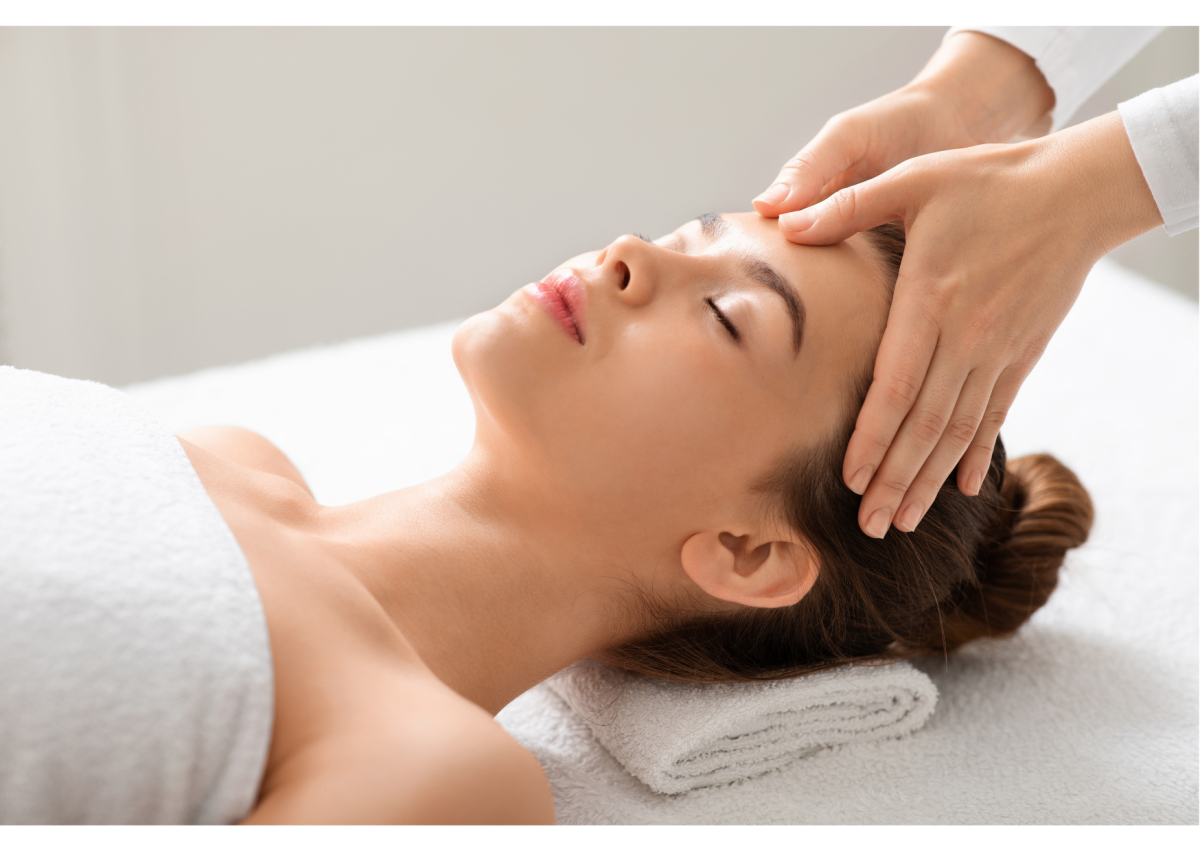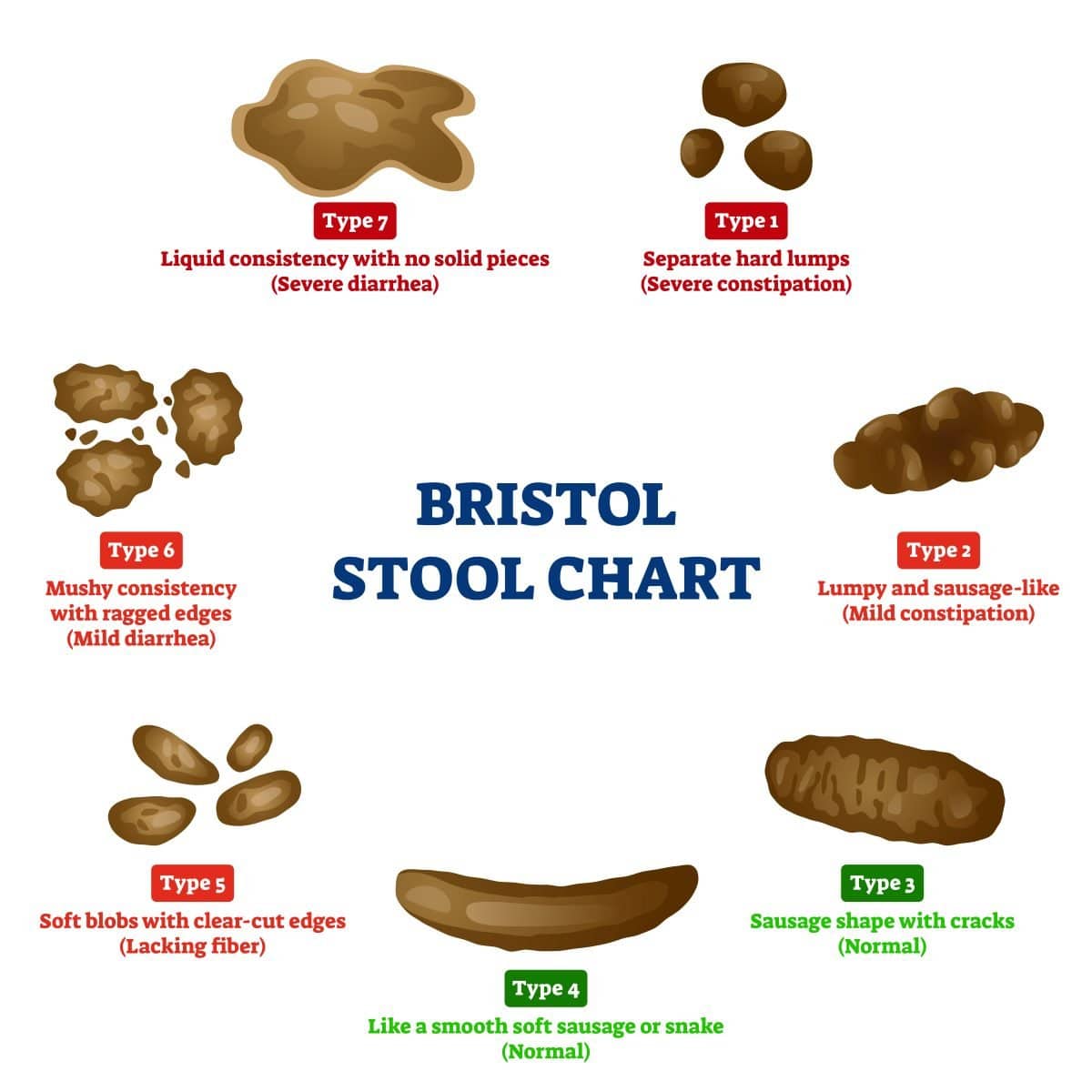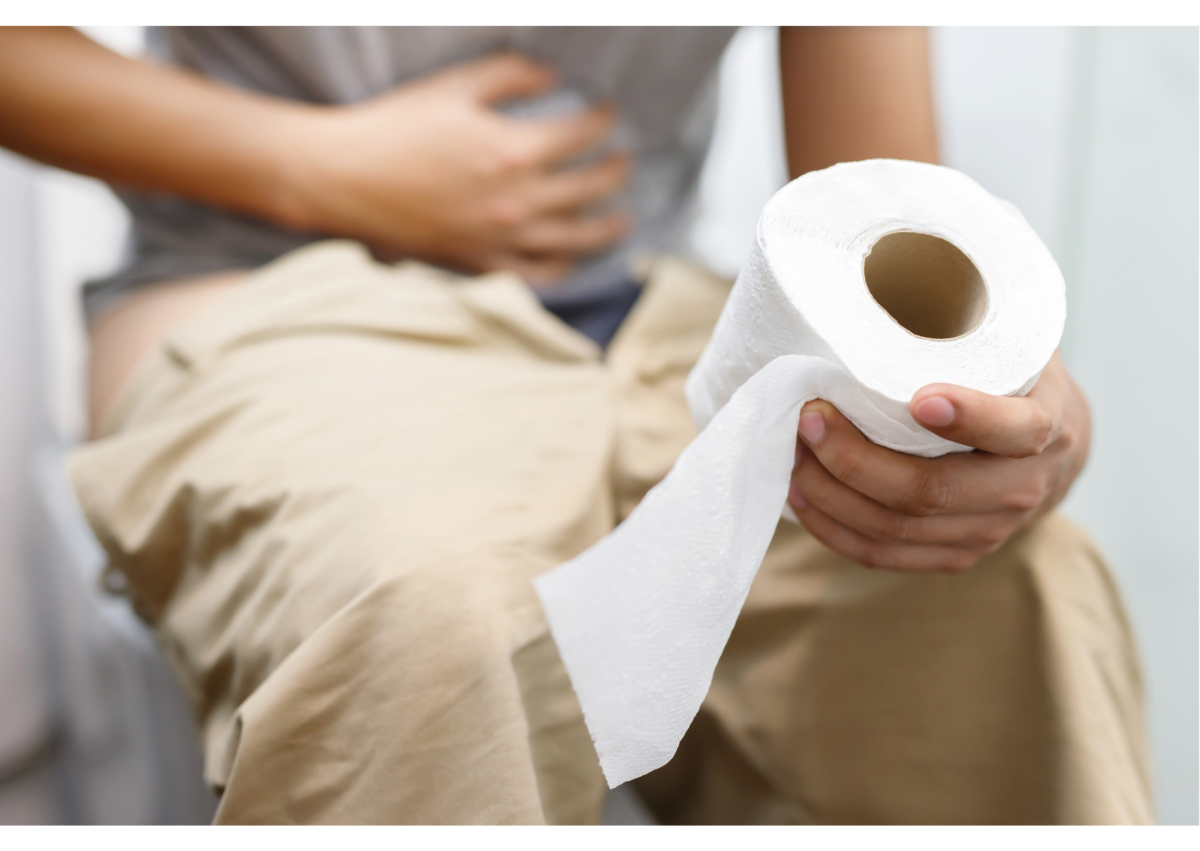Acupressure for constipation – does it really work? Evidence based answer!
- Treatments, Testing and Diagnosis
Are you exploring acupressure for constipation?
Look no further, this blog can help!
If you’ve considered trying acupressure for constipation, this blog will cover if this complementary therapy can help to stimulate bowel movements.
We will look into the evidence behind acupressure and if it really can help with constipation or not.

WHAT IS CONSTIPATION?
Constipation is a common condition where you don’t empty your bowels sufficiently, leading to common symptoms, including abdominal pain, bloating, gas, and nausea (1, 2).
Common symptoms of constipation you may notice:
- You are not having a bowel movement for at least 3 times per week
- The feeling you haven’t fully emptied your bowels
- Your stools are hard and lumpy (type 1 on this Bristol Stool Chart below)

There are many common causes of constipation which you may feel.
For more information – check out What is Constipation and How Can You Treat It.
WHAT IS ACUPRESSURE?
Acupressure is an alternative and natural therapy that involves applying pressure to specific points over your body (3).
Practitioners of acupressure claim that it is based on traditional Chinese medicine, where the energy pathways (meridians) may be restored.
You can use your fingers and hands to apply gentle pressure. You can do it in your own home or it can be done by a qualified professional, who can tailor your acupressure treatment to your specific needs.
WHAT ARE THE BENEFITS OF ACUPRESSURE?
A systematic review found that acupressure is a non-invasive strategy that can help to manage various symptoms in a variety of different conditions (4).
These symptoms included:
- Management of nausea and vomiting (for example, in pregnant women or patients who were having chemotherapy).
- Reduction in pain (for instance, after a trauma)
- Fatigue and reduce insomnia
However, there was a large risk of bias in some of the studies included within this systematic review, so we cannot be sure that these outcomes and benefits are entirely accurate.
The study stated that rigorous trials are needed. Acupressure may not be beneficial to everyone.
IS ACUPRESSURE DIFFERENT TO ACUPUNCTURE?
Acupressure and acupuncture are different types of alternative therapies.
Acupressure:
This involves applying physical pressure to specific pressure points over your body (3). The pressure is from manual techniques, which doesn’t involve needles.
Acupuncture:
A licensed and trained professional will insert hair-thin needles into specific points on your body (5).
Both of these therapies aim to stimulate parts of your body, to provide specific benefits.
CAN YOU USE ACUPRESSURE FOR CONSTIPATION?
Sadly, there is not enough evidence to show that acupressure is useful in managing your constipation.
One study did look at a very specific population of people undergoing haemodialysis (a process where your kidneys are cleaned as they are no longer working on their own) (6).
The study claims that acupressure was found to help constipation but this was not quite the case. Instead, a stool change was seen where stools became stickier and more adhesive.
Whilst this stool change is a step in the right direction to getting formed stools, the study does not show an increase in frequency or change in stool shape indicating constipation improvement.

CAN AURICULAR ACUPRESSURE HELP CONSTIPATION?
You may have heard of auricular acupressure which is a type of acupressure that occurs in or around the ear.
Sadly, there is not enough evidence to suggest that this type of accupressure can help with constipation.
More high quality research is needed before recommendations can be made.
A systematic review and meta-analysis on existing research suggests that auricular acupressure may be effective but the studies available are quite low in quality (7).
Another randomized clinical trial found that auricular acupressure reduced the severity of constipation symptoms and improved the quality of life in older adults with constipation (8).
In this study, auricular acupressure was done in residential homes by nursing staff, so the results are unlikely to apply to you unless you are in this very specific population.
The researchers only studied 53 people, making it a small sample size too.
WHAT ARE THE ACUPRESSURE POINTS FOR CONSTIPATION AND GAS?
Is there a pressure point to relieve constipation?
Constipation and gas can negatively impact your daily lifestyle.
There is not enough evidence to suggest that specific acupressure points can help to relieve constipation and gas.
HOW DO YOU STIMULATE A BOWEL MOVEMENT QUICKLY?
How do you get immediate relief from constipation?
There are other, evidence-based ways that can help promote a bowel movement and make you feel more comfortable.
Here are some suggestions you may wish to try:
- Try some Herbal tea for constipation
- Increase your fluid intake
- Exercise can help to aid digestive movement
- Consider Magnesium to help constipation
- Gradually increase your fiber intake – check out 37 high fiber smoothies – dietitian approved
- Take your prescribed or over the counter medications, such as laxatives
- Discover ways to manage your Stress, Anxiety, or Depression to relax the body
Everyone is different, so speak with your dietitian for individual recommendations based on your specific medical conditions and dietary needs.
CAN ACUPRESSURE BE USED FOR EVERYONE?
Acupressure is not suitable for everyone.
For example, this is not suitable in pregnancy, if you have burns or infections around pressure point sites, or if you have certain medical conditions.
Acupressure may also give rise to unwanted side effects, such as bruising or tenderness around the targeted area.
It is important to seek medical guidance from your doctor if you have other conditions, alongside constipation.
This blog has provided a guide on the evidence for acupressure but you should not do this instead of prescribed medications or dietetic recommendations.
SUMMARY
Sadly, there is no evidence to support that acupressure can help with unwanted constipation.
Acupressure is a complementary therapy which you can try in your own home. It does not involve needles, and only requires your fingers/hands.
Remember this is a complementary therapy, and should not be done instead of prescribed medications or medical/dietary advice from a healthcare professional.